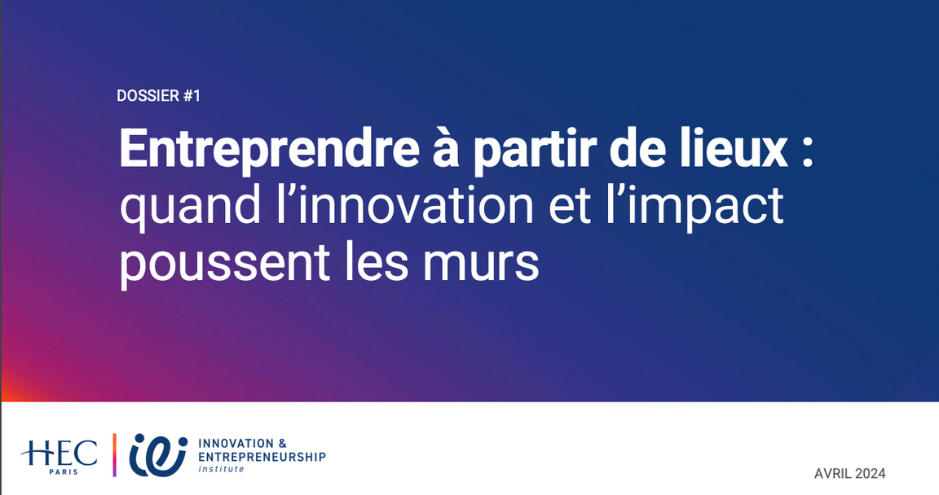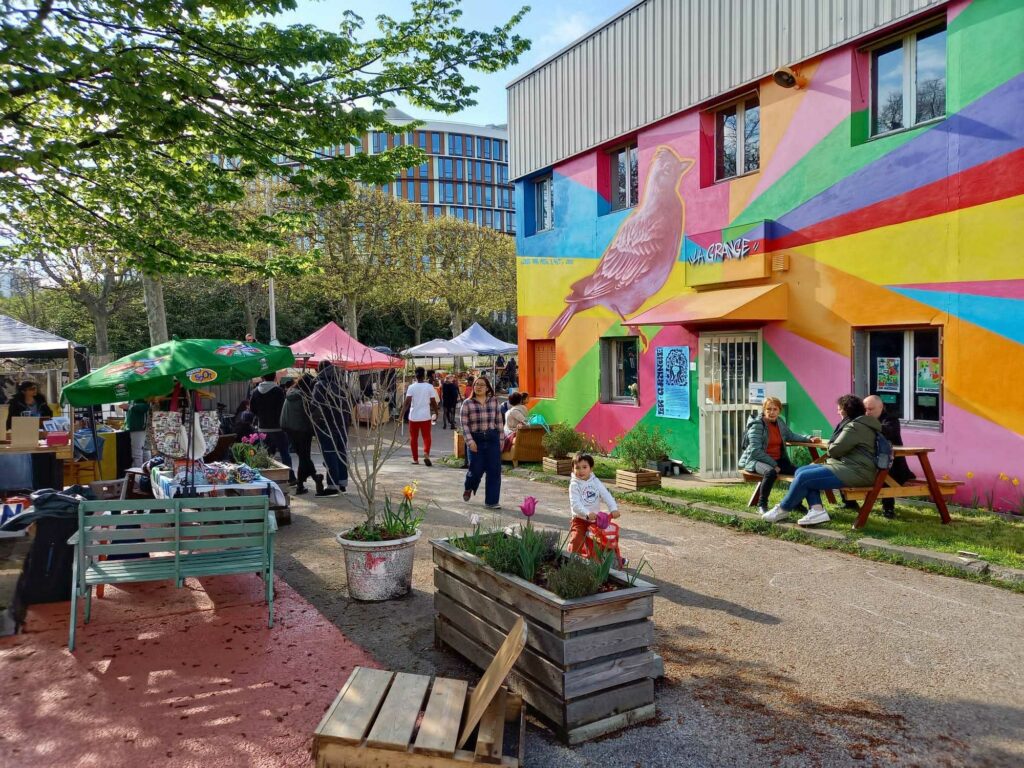Entrepreneuring from Places: When Impact & Innovation Push Back the Walls
Third places, intergenerational micro-nurseries, affordable workspaces, shared housing... If innovating from a physical place seems to go against the grain of what most of the startups of our ecosystem are offering, this approach to entrepreneurship aligns well with the principles of the Social and Solidarity Economy (SSE), but not only!

Emma France, Associate Director of HEC Paris Innovation & Entrepreneurship Institute, in charge of Impact Development, has released a comprehensive use cases report on this topic: 'Entrepreneuring from Places: When Innovation and Impact Push Back the Walls'.
Through this report, Emma hopes to enable HEC to leverage its knowledge of innovative models and entrepreneurial practices and disseminate it widely. The goal is to introduce a broad audience to these distinctive impact entrepreneurship projects, where physical location plays a pivotal role in their economic model.

ENHANCING COMPANIES IN THE HEC PARIS ECOSYSTEM
Soft mobility, circular economy, new working approaches, physical places to innovate... There are many topics on which the companies in our ecosystem are positioning themselves. The HEC Paris Innovation & Entrepreneurship Institute aims to support these companies and to build up a reservoir of knowledge and stories shared by companies in the HEC ecosystem.
It is by creating this 360-degree view that we will be able to offer a continuum of support through all our programs, enriching the organizations and companies that join our ecosystem with use cases and proven methods, and creating a community that helps each other, as well as opportunities to foster innovation..
For this first use cases report, we chose to focus on physical locations. Place-based project promoters are involved in various programs offered by the Innovation & Entrepreneurship Institute: Accélérateur ESS, HEC Incubator, Startup Launchpad, Master X-HEC Entrepreneurs. These locations reflect the diversity of entrepreneurial profiles and the different forms of entrepreneurship we support within the Institute.
Indeed, exploring this report means discovering 9 innovative projects set up all over France and based on a variety of models (third places, coworking, shared housing, etc.). One thing is certain: they all have a positive impact.

PLACES, THOSE SO SINGULAR SPACES
If "real estate is the unpopular territory of startups'' as Gaël Lebreton and Meryem Benabderrazik, intrapreneurs at Icade and founders of Imagin’Office, affirm; These examples of place-based initiatives are proving that innovation, entrepreneurship, and physical space can coexist and grow. Additionally, the unique characteristics of place-based projects, such as their extended operating times, substantial costs, and regulatory constraints based on their target audience, are noteworthy.
Despite it all, the place is a perfect playground for innovation, where experimentation and prototyping are addressed both creatively and pragmatically.
Their territorial roots don’t even limit their overall impact. Entrepreneurs who innovate from a place-based perspective take as their starting point a global, systematic observation on a sector-specific issue they'd like to see solved. This territorial anchor allows them to provide a relevant, innovative, and high-impact response to a social/environmental challenge. The place then becomes the basis of spreading its mission more widely. Emma confirms that :
In practice, our impact pushes back the walls of the place. While local roots do exist, this does not prevent us from taking much broader action on issues of concern to us all: the aging population, access to local facilities for SSE structures, intergenerational links, solidarity between residents as they work together to make the ecological transition, and so on.
CONTENT OF THE REPORT 'ENTREPRENEURING FROM PLACES: WHEN INNOVATION AND IMPACT PUSHES BACK THE WALLS'
- Why entrepreneuring from places?
- How does innovation materialize in place-based projects?
- What are the main challenges of place-based models?
- The impact of place-based models: beyond the walls!
- Regulation: a key issue for place-based entrepreneurs
- Projects-holders advice to future entrepreneurs in the sector
Get a sneak preview of the nine place-based projects featured in the report:
ABOUT EMMA FRANCE: A JOURNEY AT THE CROSSROADS OF IMPACT AND INNOVATION
Gathering, inspiring and sharing perfectly sum up Emma France' journey.
Graduated from HEC Paris, Community Builder at the Entrepreneurship Center in 2015, Entrepreneur at Startup Launchpad, then CSR Manager at an investment fund, Emma France has taken on several roles that have led her to question her career. After these experiences, she wanted to put impact more clearly at the heart of her job. That's why she came back to HEC Paris in 2018, but this time to launch the Accélérateur ESS in partnership with La Région Île-de-France and to bring a new dynamism to the HEC Stand Up programme.
Growing impact entrepreneurship programs at HEC is what has driven her for several years, to the point where she went on gap year to meet social entrepreneurs in India and West Africa. "I wanted to discover other models and look at how entrepreneurs in southern countries do social innovation. "
Currently, Emma France leads cross-functional projects for the Innovation & Entrepreneurship Institute to develop the impact of its programs in relation to the school and the HEC ecosystem. She has also been teaching impact entrepreneurship and social innovation since her doctoral studies at CNAM.
Discover her Linkedin profile and her blog.